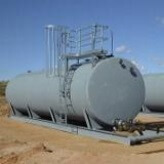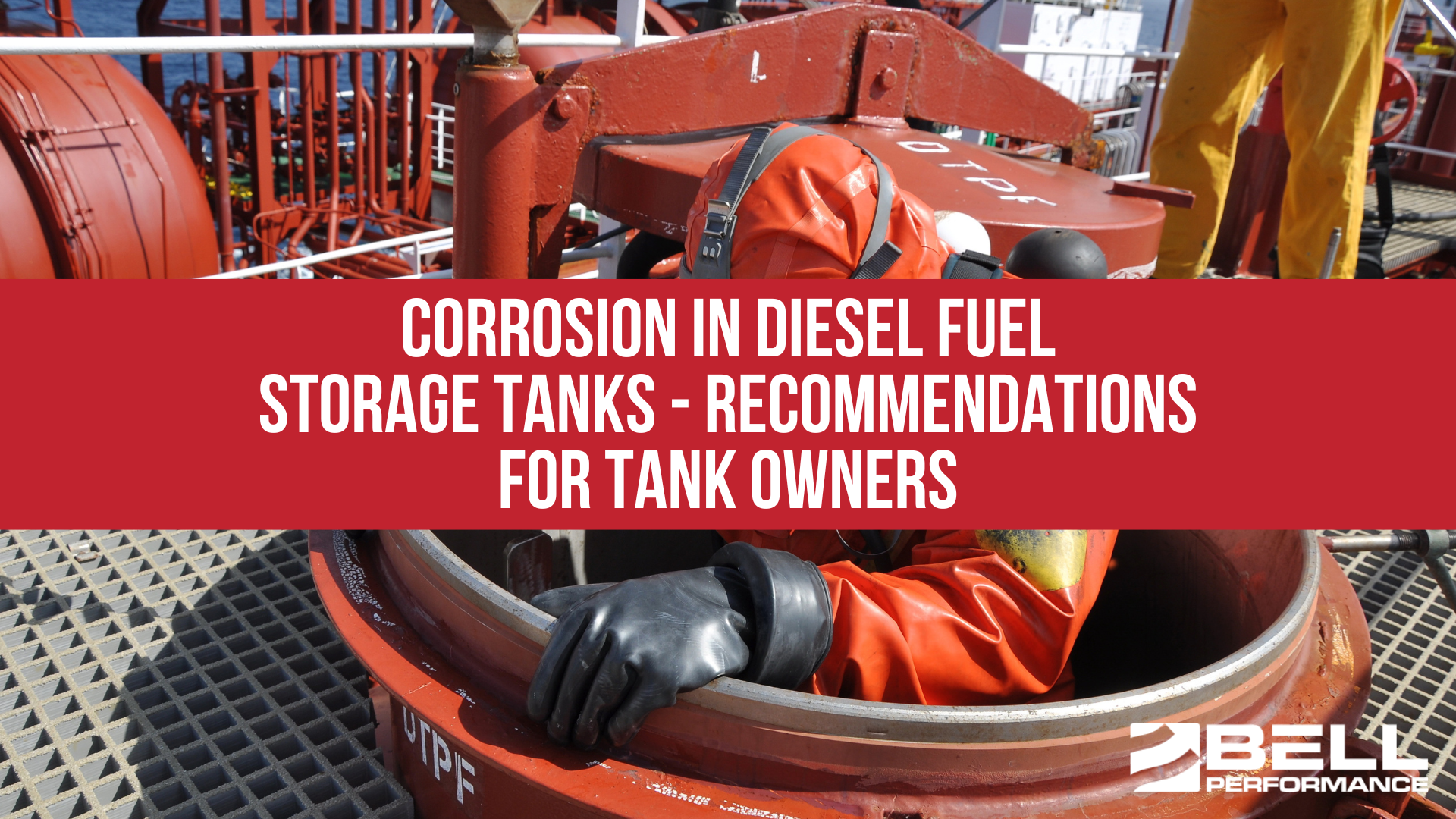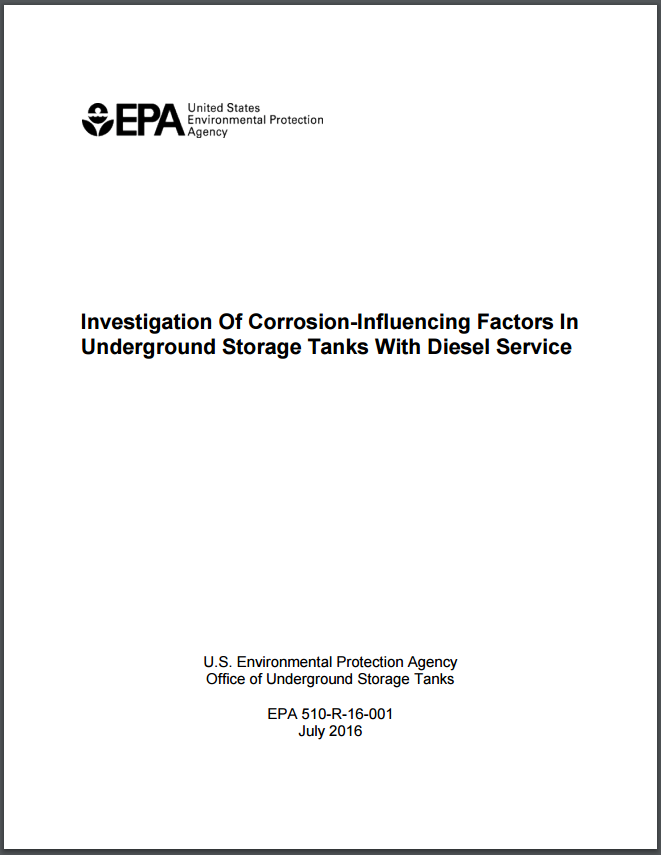Corrosion in Diesel Fuel Storage Tanks - Recommendations for Tank Owners
One of our most popular webinars from the past dealt with such an important issue - Diesel Fuel Storage Tank Corrosion - that we thought it was...
2 min read
Erik Bjornstad : Jan 10 2017

In its report released earlier in 2016, the EPA reminded us that there are over 100,000 diesel fuel storage tanks across the country. That’s a lot of tanks and a lot of stored fuel. And those are just the “regulated ones”. You can add to that figure an equally substantial number of unregulated diesel fuel storage tanks, as well as fuel storage tanks for home heating oil that fall outside the concerns of the EPA and associated regulatory agencies.
 The point the EPA seeks to make concerns the implications of the research study they conducted on more than 40 underground storage tank systems located across the country. It’s the largest study of its kind to date – a comprehensive and rigorous examination of diesel fuel storage tanks with respect to corrosion. Corrosion damage in diesel fuel storage tanks was once a minor problem rarely seen, and then only seen below the fuel line. This changed around 2007 as reports streamed in of tank corrosion damage being seen above the fuel line – vapor space corrosion, it was deemed.
The point the EPA seeks to make concerns the implications of the research study they conducted on more than 40 underground storage tank systems located across the country. It’s the largest study of its kind to date – a comprehensive and rigorous examination of diesel fuel storage tanks with respect to corrosion. Corrosion damage in diesel fuel storage tanks was once a minor problem rarely seen, and then only seen below the fuel line. This changed around 2007 as reports streamed in of tank corrosion damage being seen above the fuel line – vapor space corrosion, it was deemed.
The EPA took its course of action, to comprehensive study a large number of storage tanks, because of the fact there are so many of them out there. Surprisingly little was (and is) known about the exact extent of the tank corrosion problem across the country. Maybe it's not so bad. Or maybe it's worse than expected. If this latter fact is true, then the nation could have some serious environmental and human health peroblems on its hands.
The EPA’s 2016 study confirmed that corrosion damage in diesel fuel storage tanks is far more common than the tank system owners and operators ever really believed. More than 80% of the tanks they looked at had at least moderate corrosion damage, if not severe damage. And this was seen despite tank owners utilizing the same maintenance practices they always have (i.e. it’s not like they decided to stop paying attention. They were as careful as always, but now they have a corrosion problem).
From the tank owner/operator’s perspective, once a corrosion problem is acknowledged, they want to know what to do about it. Luckily, the EPA doesn’t just talk about the problem, they offer some solutions for treating diesel fuel storage tanks to head off this problem. Two of the key recommendations the EPA makes are regular use of both biocides and liquid corrosion inhibitor.
Biocides are essential tools to solving tank corrosion problems because they are the only thing that targets and gets rid of the most common cause of tank corrosion – the presence of microbes in diesel fuel storage tanks. While the EPA stopped short of claiming that the findings of its comprehensive study “proved” that all tank corrosion was caused by microbial activity, they were pretty clear that they believed the evidence they found strongly supported that notion. And thus one of the EPA’s primary recommendations was that maintaining diesel fuel storage tanks should entail regular treatment of the fuel inside with a biocide that will kill corrosion-causing microbes and, thus, lessen the problem.
The EPA also strongly recommended incorporating the use of liquid corrosion inhibitors into tank maintenance practices. Liquid corrosion inhibitors are treatments added to the fuel inside that lay down a layer of protection on all of the surfaces that fuel touches. The EPA recommended liquid corrosion inhibitors that use “filming amine chemistry” as their chemistry base. Between keeping microbes at bay with biocides and protecting storage tank surfaces from corrosion with liquid corrosion inhibitors, the comprehensive study by the EPA yields some pretty useful recommendations that can save storage tank operators a lot of money and headaches in the long run.

One of our most popular webinars from the past dealt with such an important issue - Diesel Fuel Storage Tank Corrosion - that we thought it was...
Back in 2017, Bell Performance did a webinar on an important issue that we thought was important to share it with our blog readers: corrosion in...

There are over 100,000 diesel fuel storage tanks across the United States, all of them holding diesel fuel that could be many years old. Over the...